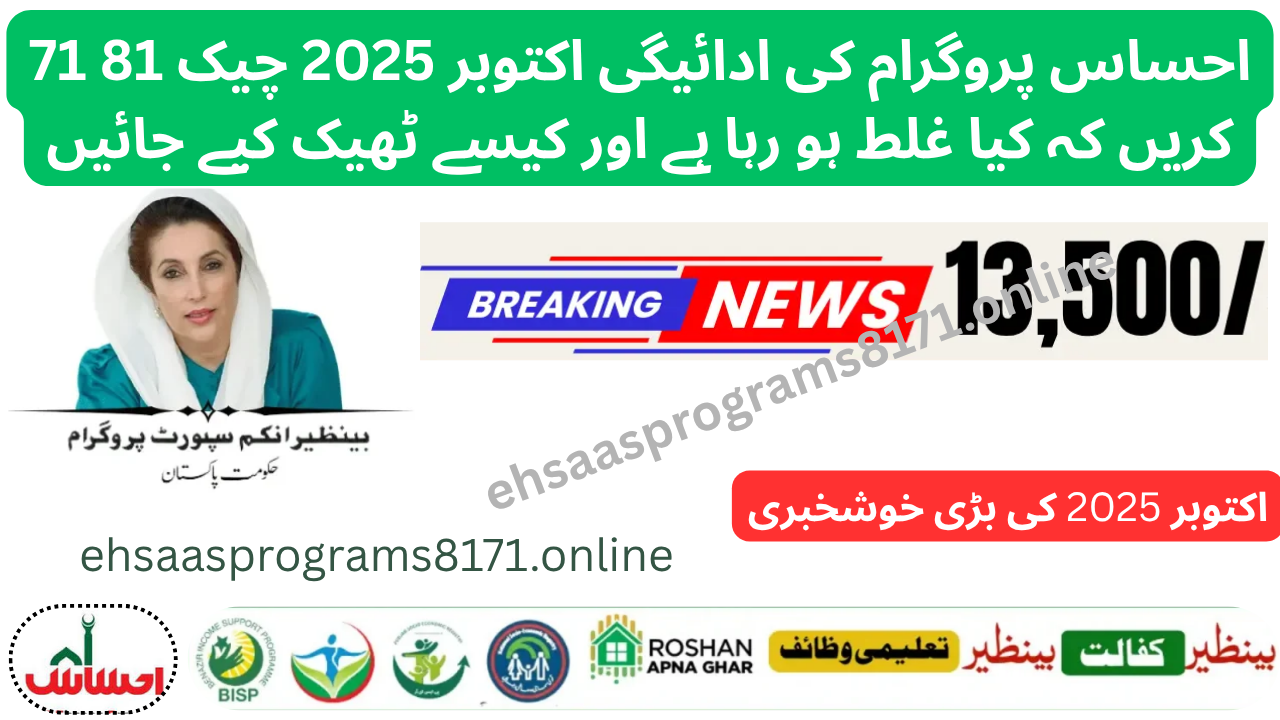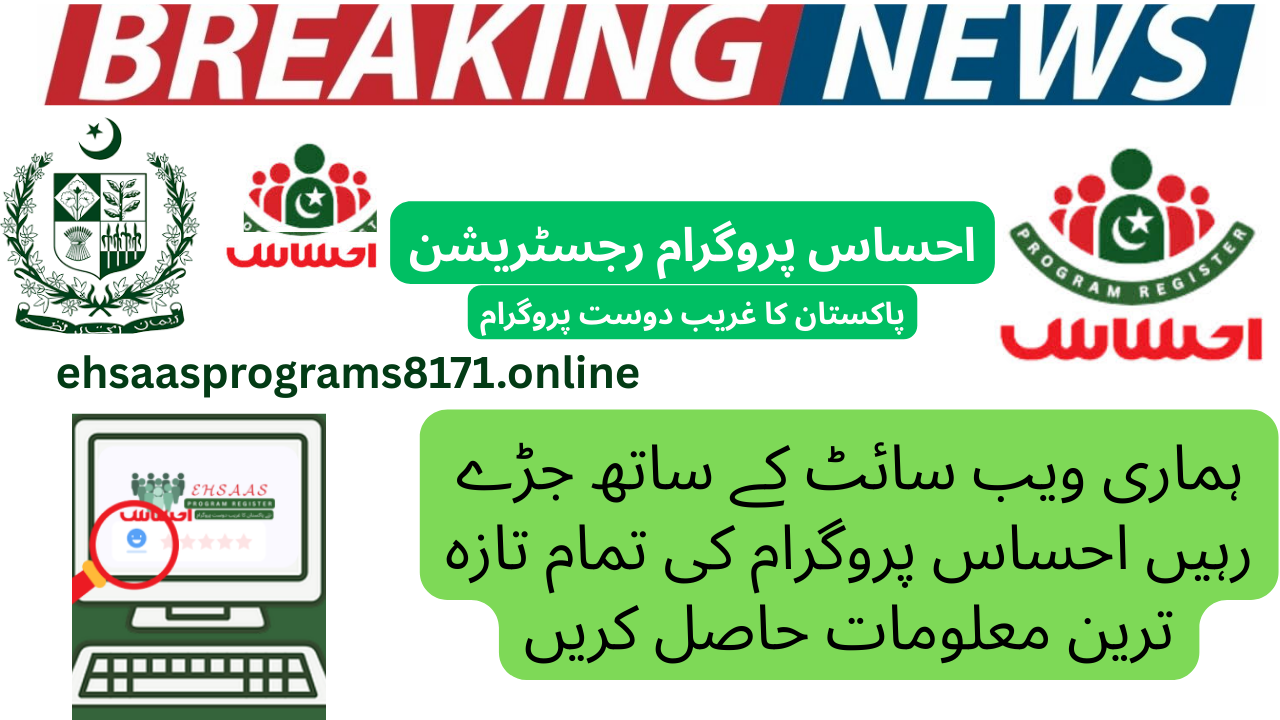8171 Ehsaas Program October 2025: The 8171 Ehsaas Program has long been a crucial support system for millions of low-income families across Pakistan. With Phase 3 payments starting in October 2025, households are eagerly waiting for their Rs. 13,500 installment, which many see as a lifeline during tough economic times.
But while the program brings hope, the latest round of payments has also highlighted some challenges that make the process frustrating for beneficiaries. This article takes a closer look at why the October 2025 payments matter, the problems being faced, and the steps both families and the government can take to fix them.
Why the October 2025 Payments Are So Important
Pakistan is experiencing rising inflation and increasing costs of living. For poor and working-class families, even a small increase in food prices, school fees, or utility bills puts an unbearable strain on household budgets.
That’s why the Ehsaas October installment is more than just financial assistance—it provides relief, stability, and dignity to families. Most beneficiaries plan to spend their payments on:
-
Monthly groceries and essential food items
-
Children’s school fees and educational needs
-
Utility bills like electricity and gas
-
Healthcare and medical emergencies
By directly transferring cash without middlemen, the government ensures that families can manage their expenses according to their priorities.
8171 Ehsaas Program October 2025 Payments Problems
Although the program is designed to be smooth, many recipients are running into difficulties this time. Some of the most common issues reported include:
-
Biometric Errors: Fingerprints not matching at payment centers.
-
“No Record Found”: Registered families not appearing in the system.
-
Payment Delays: Eligible households not receiving SMS alerts or cash on time.
-
Unfair Deductions: Some agents handing out less than the promised Rs. 13,500.
-
Technical Failures: Machines not working or CNICs not being recognized.
For families already struggling to make ends meet, these problems create added stress and uncertainty.
Practical Solutions for Beneficiaries
Both the government and the beneficiaries can take steps to minimize these issues. Here are some practical tips:
-
Biometric Failures: Try verification at another machine, or update your fingerprints at NADRA.
-
No Record Found: Visit the nearest BISP office and request a recheck or re-survey.
-
Payment Delays: Use the 8171 web portal or visit your nearest center instead of waiting only for SMS alerts.
-
Deductions by Agents: Always demand a printed receipt. If your amount is less than Rs. 13,500, immediately call the BISP helpline (0800-26477).
-
Technical Errors: Retry after 24 hours, as most system issues are temporary.
Checking Eligibility the Right Way
One of the biggest sources of confusion is eligibility status. Thankfully, there are three official ways to check, all free of cost:
-
Send your CNIC (without dashes) via SMS to 8171.
-
Visit the 8171 web portal and enter your CNIC with the captcha.
-
Go directly to your nearest BISP Tehsil Office with your CNIC.
By using these official channels, families can avoid misinformation and scams.
How to Collect Your Rs. 13,500 Safely
Once confirmed as eligible, collecting your installment should be simple. Families can withdraw their money from:
-
Official BISP payment centers
-
HBL Konnect shops
-
Partner ATMs
To ensure a smooth collection, always:
-
Carry your original CNIC
-
Never pay extra to staff or agents
-
Keep your payment receipt safe
Quick Reference: Common Issues and Fixes
| Problem Faced | Quick Fix |
|---|---|
| Biometric fingerprint fails | Try another machine / update at NADRA |
| “No Record Found” | Visit BISP office, request re-survey |
| Payment less than Rs. 13,500 | Keep receipt, call BISP helpline |
| Payment delay | Check via portal or SMS after 24 hours |
| No SMS received | Use web portal or visit nearest BISP office |
Why Fixing Issues Quickly Matters
For families who rely on daily wages, even a small delay can mean missing meals or pulling children out of school. Quick solutions are essential not only for financial relief but also for social stability. By addressing these challenges, the government strengthens trust in the Ehsaas Program and ensures that no deserving family is left behind.
Conclusion
The 8171 Ehsaas Program October 2025 installment is more than a payment—it is a lifeline for millions. While problems like biometric mismatches, technical delays, and unfair deductions still exist, there are clear solutions available.
Families should use official channels to check eligibility, collect payments from trusted outlets, and report any irregularities immediately. On the government’s side, fixing these issues will make the program stronger, fairer, and more reliable for Pakistan’s most vulnerable citizens.

